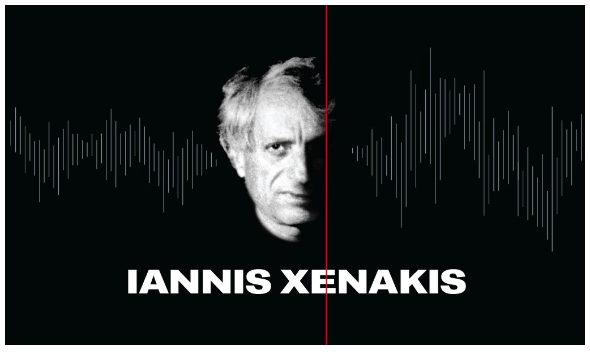Iannis Xenakis at ΕΜΣΤ
Iannis Xenakis: Sonic Odysseys and Xenakis in Greece are two major exhibitions focused on the the avant-garde composer, music theorist, architect, engineer and mathematician — and one of the most progressive creative thinkers and cultural practitioners of the second half of the 20th century, which are presented at the National Museum of Contemporary Art in Athens from June 2023 to January and February 2024.
The exhibition Xenakis and Greece draws from the extensive historical archive of CMRC, an organisation that was founded by Xenakis himself in 1979, along with the composer Stefanos Vassileiadis, the musicologist, teacher and architect-urbanist John G. Papaioannou, and 22 others, which is now hosted at the Athens Conservatoire. Rare documents and items, including original handwritten letters and texts by Xenakis, articles, music scores, event programmes, photographs, recordings, videos, and various objects, such as the UPIC (the electronic composition system he invented), cast light on his multi-faceted relationship with Greece, testifying to the fact that contemporary, avant garde music in Greece has a longer and more sophisticated history than is widely believed.
Co-produced by ΕΜΣΤ and the Philharmonie de Paris, Iannis Xenakis: Sonic Odysseys focuses on the most important and ground-breaking work of Xenakis’s visual, literary, architectural, and musical output, while illuminating his personal history by contextualising the composer in his times, and the political and cultural movements that defined him as an artist. Presenting both personal and artistic material, a thematic and chronological narrative thread highlights his rich, expansive artistic vision, invites the visitor to gain insight into his tumultuous personal history, reveals the multitude of his ecumenical interests through the recreation of his library, and takes us on a journey of Xenakis’s unique universe as we discover his sweeping sound masses and ultra-modern multi-dimensional spatial and musical universes.
The exhibitions were thoughtfully reviewed by Robert Barry in VAN and by Douglas Murphy in Apollo.
